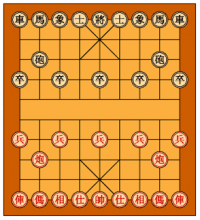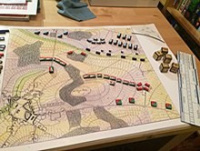Serious Gaming
When it comes to term games, people imagine video game they played when growing up or desk game that they spend time playing with their friends. However, there is another not so popularly known side to this term. Serious games represent a field of games that can be defined as any kind of initiative that is based on a game. Primary purpose of serious games is to educate while playing whereas in normal games players tend to have fun in the first place. Different sources state that modern era of serious games began in 1960s and 1970s. With technology development new and more innovative types of serious games were created. Such games can be used for various educational purposes as they tend to be more attractive than classis linear form of learning.
To illustrate this term by example, Microsoft Flight Simulator can be mentioned as it is believed to be one of the most influential serious game in history of mankind.
Contents
History
Board games
To begin with very first games that had somewhat educational aspect to them Dice must be mentioned. This game first appeared in India more than 40,000BC and younger version can be found in Iran around 3,000BC. Xiangqi, also known as Chinese chess, might be described as one of the first games with real educational purpose. It was used 200BC for military strategy. Another board games worth mentioning are Mansion of Happiness with aim to teach social principles and morals, Monopoly, Scrabble, or others.
War games
As a first military game can be considered Koenigspiel created by Christopher Weikhman in 1664. By playing this game Prussian army officers were taught battlefield tactics. In upcoming centuries, several new updated variations of Koenigspiel were created. More than century later another German gamewar was invented War Chess. Most of the military games created and played in history were basically board games with war aspect to them but that changed in 1948 when first computer games emerged (e.g., Air Defense Simulation and CARMONETTE).
Modern era of serious games can be dated back to the 1960s when video games started to emerge. In addition to the first video games, serious games were created. Their aim was, for example, to simulate defensive tactical strategies in a world other than the real world. [1]
Definition, terminology and features
Definition
Serious games induce some kind of affective or motor learning (understood in very broad sense) at any level. Put more simply: serious games are used for more than entertainment. [2]
Opposed to normal games, serious games for computers or played online follow implicit or explicit learning goals instead of pure entertainment therefore justifying their addition “serious”. [3]
From historical point of view there are several synonyms to serious games: educational games, business games, gaming and simulation, edutainment, Immersive Learning Simulations (ILS) or just simply simulations.
Features of serious games
According to the Summit of Educational Games for the game to be marked as serious games it has to:
- Have clear learning goals
- Broad experiences and practice opportunities that continue to challenge the learner and reinforce expertise
- Continuous monitoring of progress, and use of this information to diagnose performance and adjust instruction to learner level of mastery
- Encouragement of inquiry and questions, and response with answers that are appropriate to the learner and context
- Contextual Bridging: Games and simulations can close the gap between what is learned and its use [4]
Division and categorization
Advantages and disadvantages of serious games
Real applications - Top 10
Interesting things and curiosities
References
- ↑ SMITH, Roger. (2009) A history of Serious Games [online]. [cit. 2021-015-01] Available at: https://www.slideshare.net/roger.smith/a-history-of-serious-games/
- ↑ Susi T.; M. Johannesson, and P. Backlund, (2007). "Serious Games – An Overview," School of Humanities and Informatics, University of Skövde, Sweden, Technical Report HS-IKI-TR-07-001, 2007.
- ↑ de Freitas, S. (2008). Serious Virtual Worlds: A Scoping Study. Available at: http://www.jisc.ac.uk/media/documents/publications/seriousvirtualworldsv1.pdf.de/
- ↑ EduTech Wiki (2019 Serious games. Available at: http://edutechwiki.unige.ch/en/Serious_game#Features_of_serious_games/

